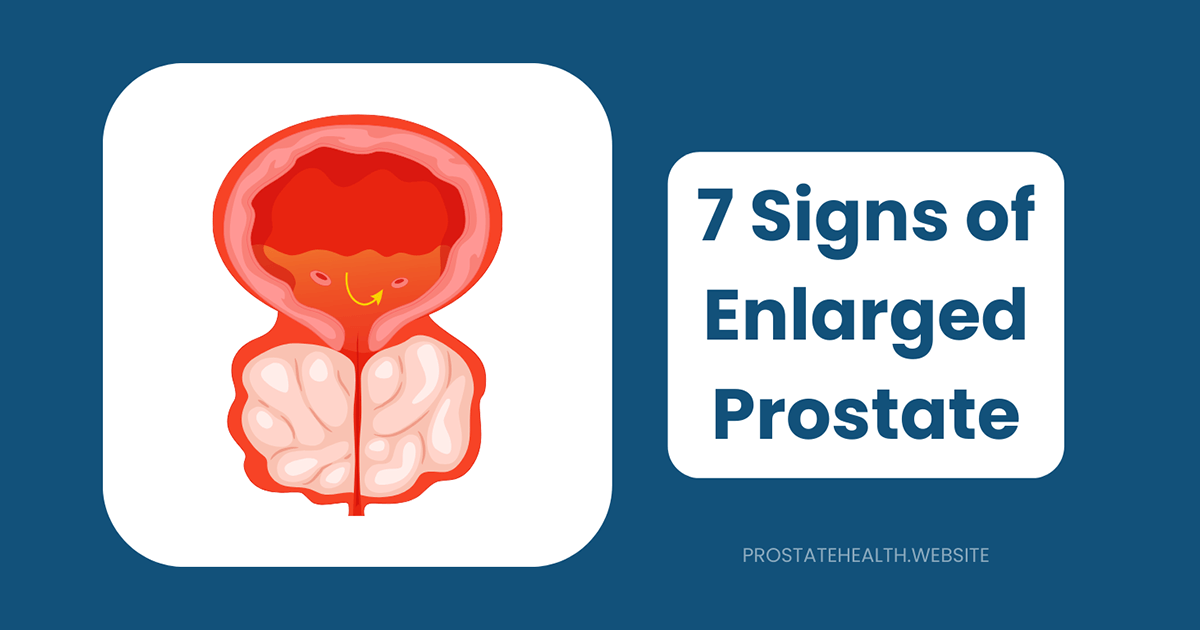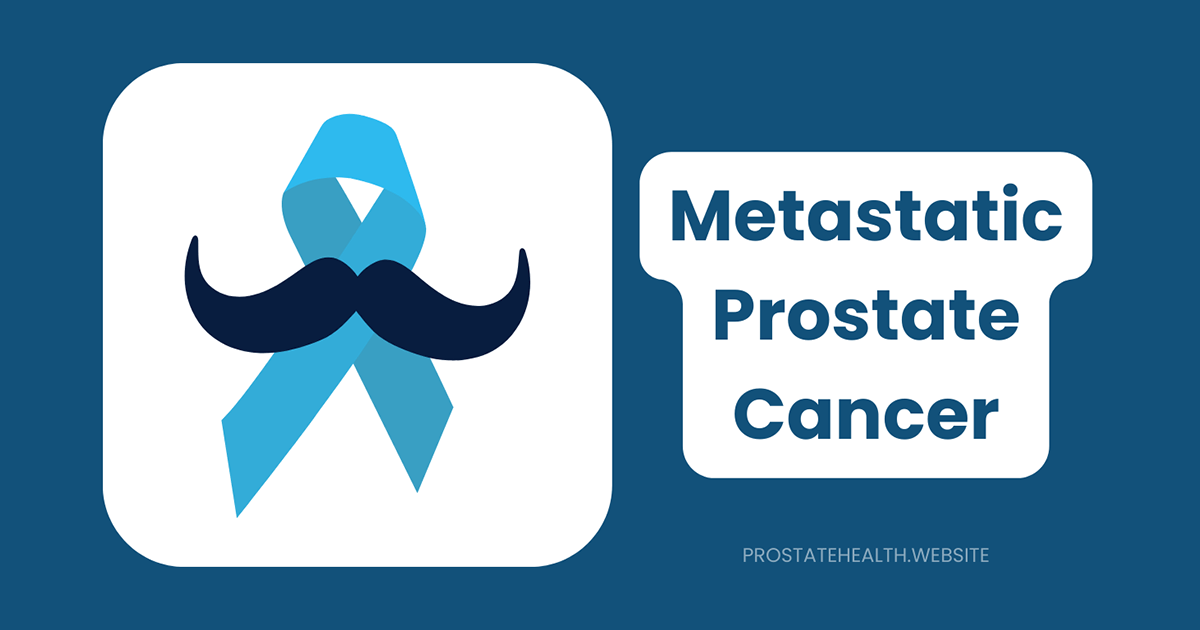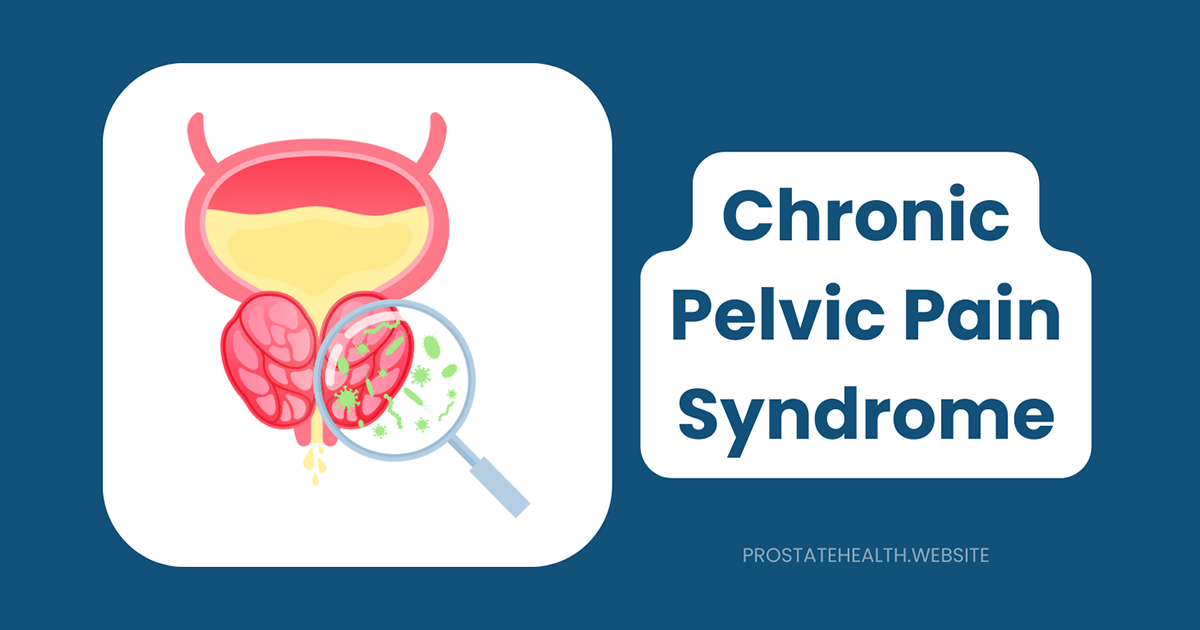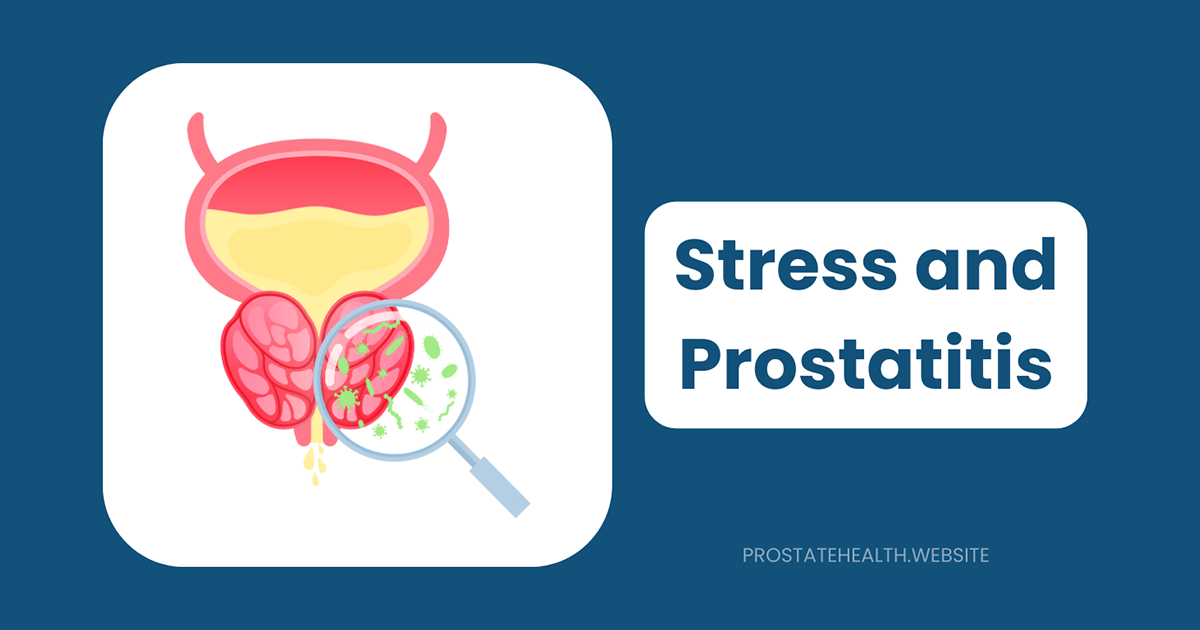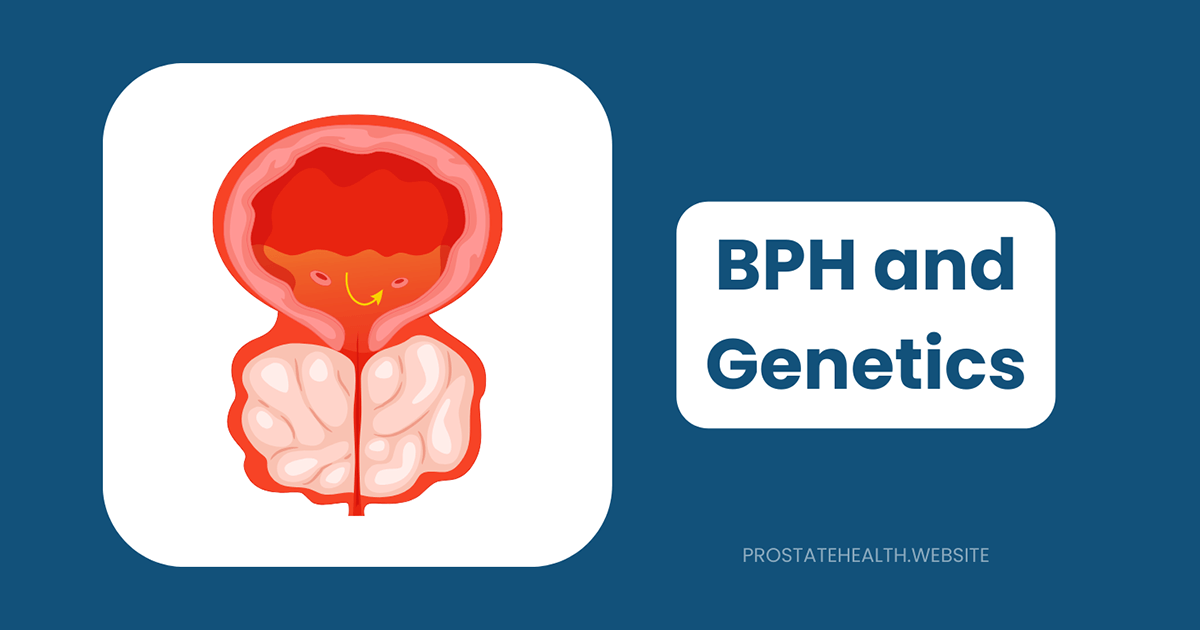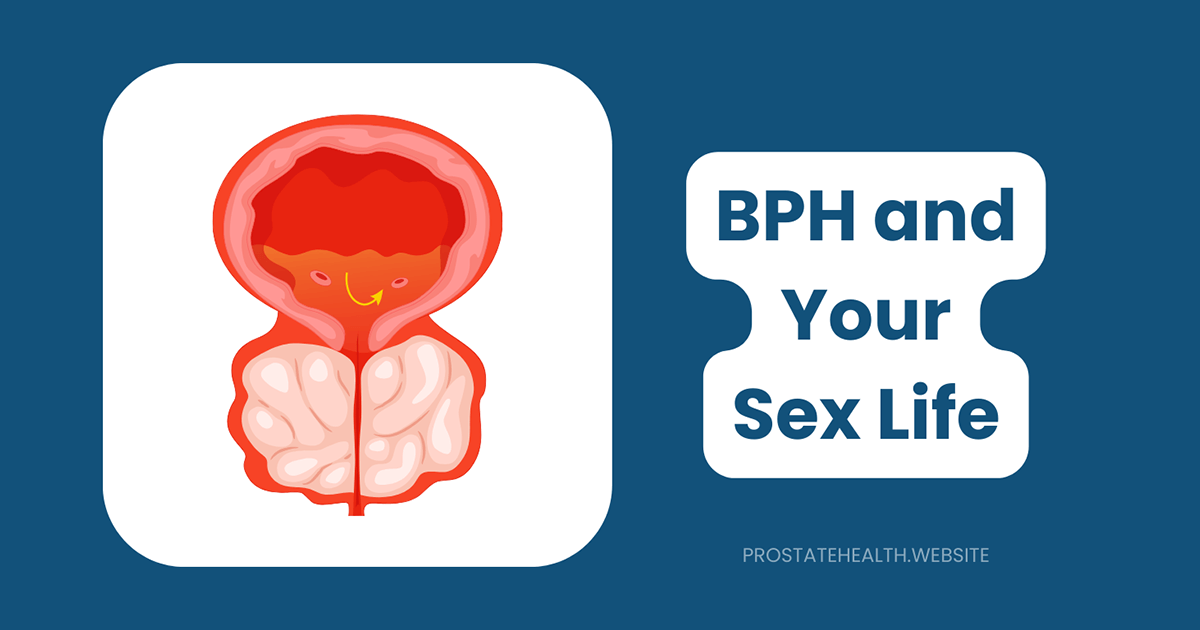BPH and Sleep Disruption: Breaking the Cycle of Nighttime Urination
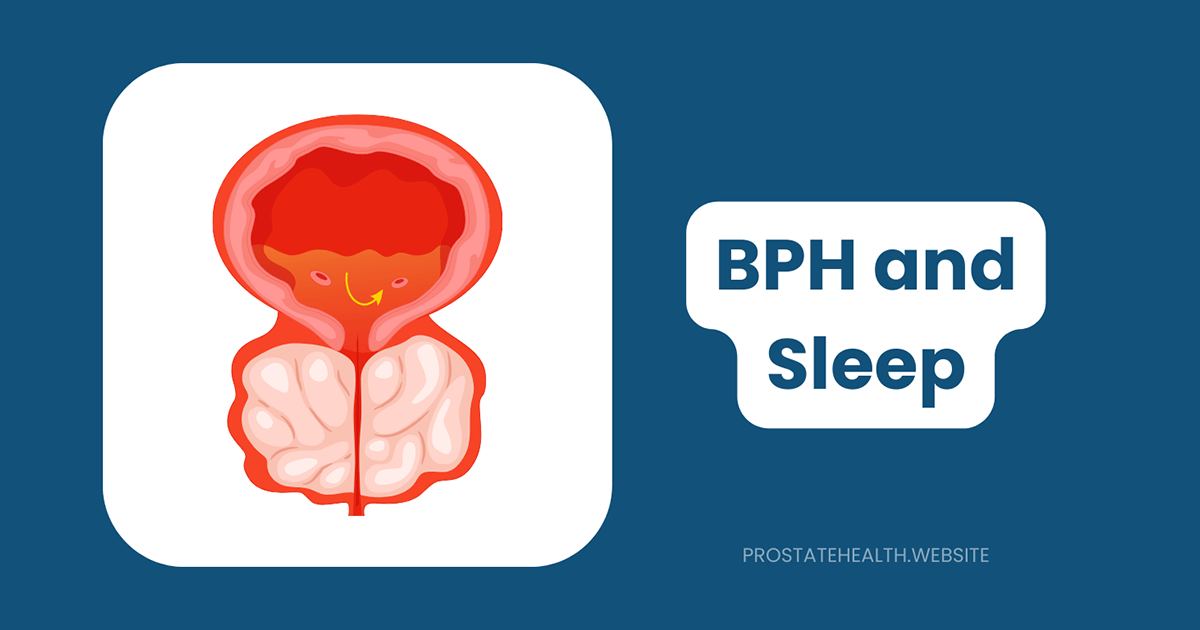
It’s 2:17 AM. Again. For the third time tonight, you’re making that all-too-familiar trek to the bathroom. As you stumble back to bed, you already dread the next inevitable interruption. If this scenario sounds painfully familiar, you’re experiencing nocturia—frequent nighttime urination—likely related to benign prostatic hyperplasia (BPH).
This frustrating cycle affects millions of men, with studies showing that more than 80% of men aged 50 and older wake up to urinate at night at least once a month. But the impact goes far beyond mere inconvenience. Chronic sleep disruption can significantly affect your quality of life, cognitive function, and even long-term health.
In this comprehensive guide, we’ll explore the connection between BPH and sleep disruption, and most importantly, provide actionable strategies to break this exhausting cycle.
Understanding the BPH-Nocturia Connection
What Exactly Is Happening in Your Body?
Benign prostatic hyperplasia—the medical term for an enlarged prostate—creates a mechanical obstruction that affects your entire urinary system. Dr. Michael Chen, urologist at Metropolitan Urology Center, explains: “As the prostate enlarges, it compresses the urethra, creating resistance to urine flow. This leads to incomplete bladder emptying and increased urinary frequency, including at night.”
The numbers tell a compelling story:
- In men with moderate to severe BPH, up to 70% report two or more episodes of nighttime urination
- Approximately 30% experience three or more nightly bathroom trips
- By age 70, nearly 80% of men have some degree of BPH, with nocturia being one of the most bothersome symptoms
The Vicious Cycle: How BPH and Poor Sleep Feed Each Other
What makes nocturia particularly challenging is the self-reinforcing cycle it creates:
- BPH causes urinary frequency → You wake up to urinate
- Sleep disruption occurs → Sleep quality diminishes
- Poor sleep affects bladder function → Bladder becomes more irritable
- Bladder irritability increases urinary frequency → You wake up more often
- Cycle repeats and intensifies
Recent research from the American Urological Association (2024) has revealed that this isn’t just a mechanical issue—it’s also related to your body’s internal clock. Dr. Sarah Johnson, sleep medicine specialist, notes: “We now understand that nocturia isn’t simply a urological problem but also a circadian rhythm disorder affecting bladder function.”
The Hidden Health Costs of Nocturia
The consequences of BPH-related sleep disruption extend far beyond fatigue. Consider these sobering statistics:
- Men with severe nocturia (3+ episodes per night) have a 21% higher mortality rate compared to those without nocturia
- Chronic sleep disruption increases the risk of cardiovascular disease by up to 48%
- Cognitive function can decline by up to 30% after just one week of fragmented sleep
- Risk of depression increases by 2-3 times in individuals with chronic nocturia
- 64% of partners of men with BPH also report significant sleep disruptions
Dr. James Williams, geriatrician specializing in men’s health, emphasizes: “We often focus on the urological aspects of BPH, but the sleep disruption it causes may actually pose a greater health risk for many men.”
Beyond Fatigue: The Full Impact of Sleep Disruption
The effects of chronic sleep fragmentation include:
- Cognitive impairment: Memory problems, reduced concentration, and impaired decision-making
- Mood disorders: Increased irritability, anxiety, and depression risk
- Metabolic changes: Insulin resistance and increased diabetes risk
- Immune dysfunction: Reduced immune response and increased inflammation
- Cardiovascular strain: Elevated blood pressure and increased heart disease risk
- Reduced quality of life: Decreased energy, social withdrawal, and reduced enjoyment of activities
- Safety concerns: Increased risk of falls and accidents due to fatigue
Breaking the Cycle: A Comprehensive Approach
Effectively managing BPH-related nocturia requires a multi-faceted approach. Let’s explore the most effective strategies, from simple lifestyle adjustments to advanced medical interventions.
Lifestyle Modifications: First-Line Defense
Simple changes to your daily habits can significantly reduce nighttime urination:
1. Strategic Fluid Management
- Timing is everything: Reduce fluid intake 2-3 hours before bedtime
- Morning hydration: Consume 50-60% of your daily fluids before 4 PM
- Evening restriction: Limit evening fluids to small sips as needed
- Track your intake: Use a smartphone app to monitor fluid consumption patterns
Dr. Robert Thompson, urologist at University Medical Center, advises: “Many men resist reducing evening fluids because they’re concerned about dehydration. The key is to shift your hydration schedule, not reduce overall intake.”
2. Dietary Adjustments
Certain foods and beverages can irritate the bladder or increase urine production:
- Limit bladder irritants: Reduce consumption of caffeine, alcohol, artificial sweeteners, and spicy foods
- Watch sodium intake: High salt consumption increases nighttime urine production
- Consider natural aids: Recent research shows that increased dietary flavonoid intake (found in berries, tea, and dark chocolate) is inversely associated with nocturia severity
- Evening meal timing: Eat dinner at least 3 hours before bedtime to allow for digestion
3. Optimize Sleep Environment
Creating conditions conducive to uninterrupted sleep can help reduce the impact of nocturia:
- Temperature control: Keep bedroom between 65-68°F (18-20°C)
- Light management: Use blackout curtains and eliminate sources of blue light
- Noise reduction: Consider white noise machines or earplugs
- Bedding comfort: Invest in a supportive mattress and pillows
- Bathroom navigation: Install nightlights for safer bathroom trips
4. Physical Activity and Weight Management
Regular exercise and maintaining a healthy weight can significantly improve both BPH symptoms and sleep quality:
- Regular aerobic exercise: 30 minutes of moderate activity most days
- Pelvic floor exercises: Strengthen the muscles that control urination
- Weight management: Even modest weight loss can reduce pressure on the bladder
- Timing matters: Exercise earlier in the day rather than close to bedtime
Medical Interventions: When Lifestyle Changes Aren’t Enough
For many men, lifestyle modifications alone won’t sufficiently control nocturia. Fortunately, several effective medical treatments are available:
1. Medications for BPH
Several classes of medications can help reduce BPH symptoms, including nocturia:
- Alpha-blockers (e.g., tamsulosin, alfuzosin): Relax prostate and bladder neck muscles to improve urine flow
- 5-alpha reductase inhibitors (e.g., finasteride, dutasteride): Shrink the prostate by blocking hormones that promote growth
- Phosphodiesterase-5 inhibitors (e.g., tadalafil): Improve urinary symptoms while also addressing erectile dysfunction
- Combination therapy: Often more effective than single medications alone
Dr. Lisa Chen, pharmacologist specializing in urological medications, notes: “The effectiveness of BPH medications for nocturia varies significantly between individuals. It’s important to track your response and discuss adjustments with your healthcare provider.”
2. Medications Specifically for Nocturia
Some medications target the mechanisms of nocturia directly:
- Desmopressin: Reduces urine production during sleep by mimicking a natural hormone
- Anticholinergics (e.g., solifenacin, oxybutynin): Reduce bladder overactivity
- Beta-3 agonists (e.g., mirabegron): Relax the bladder muscle to increase storage capacity
- Diuretics with timed dosing: When taken in the morning, can shift urine production away from nighttime
3. Emerging Treatments (2025)
Recent research has yielded promising new approaches:
- SGLT2 inhibitors: Originally developed for diabetes, these medications show promise for reducing nocturnal polyuria
- Daridorexant: A dual orexin receptor antagonist that improves sleep while potentially reducing nocturia episodes
- Circadian rhythm modulators: Medications that target the body’s internal clock to normalize bladder function
- Melatonin supplementation: May help regulate bladder function through its effects on circadian rhythms
Minimally Invasive Procedures: When Medications Aren’t Sufficient
For men with moderate to severe BPH who don’t respond adequately to medications, several minimally invasive options can provide relief:
1. Office-Based Procedures
These procedures can be performed in a urologist’s office with minimal recovery time:
- Prostatic Urethral Lift (UroLift®): Places small implants to hold the prostate tissue away from the urethra
- Rezūm Water Vapor Therapy: Uses steam to reduce prostate tissue
- Temporary Implantable Nitinol Device (iTIND): Reshapes the prostatic urethra over 5-7 days
- Prostate Artery Embolization (PAE): Blocks blood flow to the prostate, causing it to shrink
Dr. James Wilson, interventional urologist, explains: “These minimally invasive options have revolutionized BPH treatment. Many men experience significant reduction in nocturia within weeks of these procedures, often with fewer side effects than traditional surgery.”
2. Surgical Options
For severe cases or when other treatments fail, surgical intervention may be necessary:
- Transurethral Resection of the Prostate (TURP): The traditional gold standard surgical treatment
- Holmium Laser Enucleation of the Prostate (HoLEP): Uses laser energy to remove prostate tissue
- Aquablation: Uses high-velocity water jets to remove prostate tissue
- Photoselective Vaporization of the Prostate (PVP): Uses laser energy to vaporize prostate tissue
The Circadian Connection: A New Frontier in Nocturia Treatment
One of the most exciting developments in nocturia research is the recognition of its connection to circadian rhythms—your body’s internal 24-hour clock.
How Circadian Rhythms Affect Your Bladder
Recent studies have revealed that the bladder, like many organs, has its own peripheral clock genes that regulate its function throughout the day and night. Disruption of these rhythms can contribute to nocturia in several ways:
- Altered urine production: Normally, your body produces less urine at night due to circadian regulation of hormones like vasopressin
- Changes in bladder capacity: Bladder storage capacity naturally increases during sleep
- Sensory threshold shifts: The threshold for sensing bladder fullness changes throughout the day and night
Dr. Michael Roberts, researcher at the Sleep and Circadian Disorders Institute, explains: “We’re discovering that many men with nocturia have disruptions in their circadian regulation of bladder function. This opens up entirely new treatment approaches targeting the body’s internal clock rather than just the prostate or bladder.”
Circadian-Based Interventions
Emerging approaches to address the circadian aspects of nocturia include:
- Light therapy: Controlled exposure to bright light in the morning and limiting blue light in the evening
- Chronotherapy: Timing medications to align with your body’s natural rhythms
- Sleep schedule regulation: Maintaining consistent sleep and wake times
- Melatonin supplementation: Low-dose melatonin may help regulate bladder function
- Chronobiotic medications: New drugs being developed to target circadian clock genes
Comprehensive Management Plan: Putting It All Together
The most effective approach to breaking the cycle of BPH-related sleep disruption combines multiple strategies tailored to your specific situation. Here’s a step-by-step plan:
Step 1: Assessment and Tracking
Before implementing changes, establish your baseline:
- Keep a voiding diary: Record fluid intake, urination frequency, and volume for 3-7 days
- Use a sleep tracker: Monitor sleep quality and disruptions
- Complete the International Prostate Symptom Score (IPSS): Assess BPH symptom severity
- Evaluate impact: Rate how significantly nocturia affects your quality of life
Step 2: Implement First-Line Strategies
Start with non-pharmacological approaches:
- Fluid management: Adjust timing and types of fluids
- Sleep hygiene: Optimize sleep environment and bedtime routine
- Dietary modifications: Reduce bladder irritants and evening food intake
- Physical activity: Establish regular exercise routine
- Bladder training: Gradually extend time between daytime urinations
Step 3: Consult Healthcare Providers
Work with medical professionals to develop a comprehensive plan:
- Urologist: Evaluate prostate size and urinary function
- Sleep specialist: Assess for other sleep disorders like sleep apnea
- Primary care physician: Manage contributing conditions like diabetes or heart disease
- Pharmacist: Review medications that might contribute to nocturia
Step 4: Medical Intervention as Needed
Based on professional assessment, consider:
- Appropriate medications: For BPH, overactive bladder, or specific nocturia
- Minimally invasive procedures: If medications provide insufficient relief
- Surgical options: For severe or refractory cases
- Combination approaches: Often more effective than single treatments
Step 5: Ongoing Monitoring and Adjustment
Treatment for nocturia often requires fine-tuning:
- Regular reassessment: Track symptoms and treatment response
- Medication adjustments: Dosage or timing modifications as needed
- Lifestyle refinement: Continue optimizing non-medical approaches
- Technology utilization: Consider apps and devices that help monitor progress
Special Considerations for Different Age Groups
The approach to BPH-related nocturia may vary depending on your age and overall health status:
For Men in Their 50s
- Focus on preventive measures and early intervention
- Address lifestyle factors like weight, exercise, and stress
- Consider alpha-blockers as first-line medication therapy
- Evaluate work schedule impact on sleep and urination patterns
For Men in Their 60s
- More aggressive medical management may be appropriate
- Consider combination medication therapy
- Evaluate for other contributing conditions like sleep apnea
- Discuss minimally invasive procedure options earlier
For Men 70 and Older
- Balance treatment benefits against potential side effects
- Pay special attention to fall risk during nighttime bathroom trips
- Consider impact of other medications on nocturia
- Evaluate for age-related changes in sleep architecture
When to Seek Immediate Medical Attention
While nocturia is typically a chronic condition that develops gradually, certain symptoms warrant prompt medical evaluation:
- Sudden onset of severe nocturia (4+ episodes per night)
- Blood in urine (hematuria)
- Pain during urination
- Complete inability to urinate (urinary retention)
- Fever or chills accompanying urinary symptoms
- Significant lower extremity swelling with nocturia
Success Stories: Breaking the Cycle
Robert’s Story: The Power of Timing
Robert, 62, was waking 3-4 times nightly to urinate. After tracking his fluid intake, he realized he was consuming most of his daily fluids after 5 PM. By shifting 70% of his fluid intake to before 3 PM and taking his blood pressure medication in the morning instead of evening, he reduced his nighttime urination to just once per night.
Michael’s Story: The Minimally Invasive Solution
Michael, 58, tried multiple medications for his BPH with only modest improvement in his nocturia. After undergoing the UroLift procedure, his nighttime urination decreased from 3-4 times to just once most nights. “I had forgotten what it felt like to get a full night’s sleep,” he reports. “The procedure was much easier than I expected, and the results have been life-changing.”
David’s Story: The Comprehensive Approach
David, 67, combined several strategies to address his severe nocturia. He started with lifestyle modifications, added an alpha-blocker medication, and worked with a sleep specialist to address his mild sleep apnea. By addressing multiple contributing factors, he reduced his nighttime urination from 5+ times to 1-2 times. “It wasn’t any one thing that fixed the problem,” he notes. “It was the combination approach that finally broke the cycle.”
Conclusion: Reclaiming Your Nights and Days
BPH-related sleep disruption doesn’t have to be an inevitable part of aging. With the right combination of lifestyle modifications, medical interventions, and attention to circadian factors, most men can significantly reduce nighttime urination and improve sleep quality.
The benefits extend far beyond just sleeping better. Breaking the cycle of nocturia can improve cognitive function, emotional well-being, physical health, and overall quality of life. It can also reduce strain on relationships and enhance daytime productivity.
Dr. Jennifer Adams, sleep medicine physician, offers this encouraging perspective: “I’ve seen countless men transform their lives by addressing BPH-related sleep disruption. The ripple effects of improved sleep touch virtually every aspect of health and well-being. It’s never too late to break the cycle.”
Frequently Asked Questions About BPH and Sleep Disruption
No. While BPH is a common cause of nocturia in men over 50, other conditions can contribute, including diabetes, heart failure, sleep apnea, urinary tract infections, and certain medications. A thorough evaluation is important to identify all contributing factors.
For most adults under 65, getting up once or not at all is considered normal. For those over 65, up to two times may be considered within normal limits. However, the impact on your sleep quality and daily functioning is more important than the specific number.
Complete elimination of nocturia depends on its causes. Many men can reduce episodes to a manageable level (0-1 times per night) with appropriate treatment. Even when complete resolution isn’t possible, significant improvement can substantially enhance quality of life.
Yes, for many men. Studies show that weight loss can reduce nocturia episodes by decreasing abdominal pressure on the bladder and improving overall metabolic health. Even modest weight loss of 5-10% can yield noticeable improvements.
The timeline varies by medication type. Alpha-blockers may provide some relief within days to weeks, while 5-alpha reductase inhibitors typically take 3-6 months to reach full effectiveness. Individual response varies significantly.
Sleep medications generally don’t reduce the need to urinate but may make you less likely to wake in response to bladder signals. This approach is generally not recommended as it doesn’t address the underlying causes and may lead to other issues.
Some evidence suggests that saw palmetto, beta-sitosterol, and pygeum may help with mild BPH symptoms, including nocturia. However, results are mixed, and these supplements are not FDA-regulated. Discuss with your healthcare provider before trying supplements.

